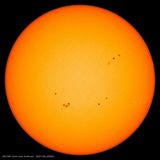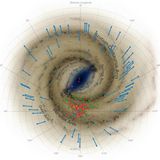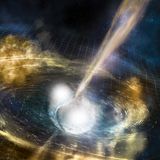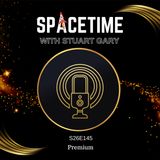Solar Activity // NASA’s Fermi Mission // Day That Changed Astronomy | S26E145
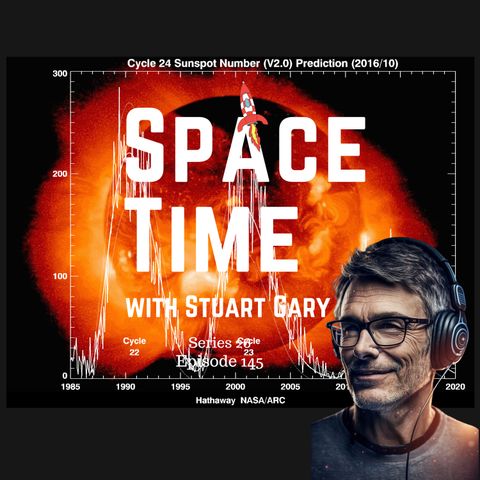
Download and listen anywhere
Download your favorite episodes and enjoy them, wherever you are! Sign up or log in now to access offline listening.
Solar Activity // NASA’s Fermi Mission // Day That Changed Astronomy | S26E145
This is an automatically generated transcript. Please note that complete accuracy is not guaranteed.
Chapters
Description
The Space News Podcast. SpaceTime Series 26 Episode 145 *Solar activity likely to peak next year. A new study claims the Sun will reach the peak of its eleven year...
show moreSpaceTime Series 26 Episode 145
*Solar activity likely to peak next year.
A new study claims the Sun will reach the peak of its eleven year solar Cycle next year. The current Solar cycle -- 25 began in December 2019 with a minimum smoothed sunspot number of 1.8.
NASA’s Fermi Mission nets 300 gamma-ray pulsars … and counting
A new catalogue shows that NASA’s Fermi Gamma-ray Space Telescope has discovered 294 gamma-ray-emitting pulsars, while another 34 suspects await confirmation.
*A day that changed astronomy for ever
Back on the 17th of August 2017 astronomers were for the first time ever able to measure the violent death spiral of a pair of neutron stars using both conventional electromagnetic telescopes and the relatively new field of gravitational wave laser interferometry.
*The Science Report
Ozone levels above Antarctica may not be recovering after all. Inhaling air pollution while sitting in traffic associated with an increase in blood pressure.
Study claims city dwelling bees tend to have bigger brains than their country cousins.
Skeptic's guide to the 2023 Bent Spoon Awards
This week’s guests include:
Professor Matthew Bailes from OzGrav the ARC Centre of Excellence for Gravitational Wave Discovery
Mars Odyssey deputy project scientist Laura Kerber from JPL
And our regular guests:
Alex Zaharov-Reutt from techadvice.life
Tim Mendham from Australian Skeptics
Jonathan Nally from Sky and Telescope Magazine
isten to SpaceTime on your favorite podcast app with our universal listen link: https://spacetimewithstuartgary.com/listen and access show links via https://linktr.ee/biteszHQ
Additionally, listeners can support the podcast and gain access to bonus content by becoming a SpaceTime crew member through www.bitesz.supercast.com or through premium versions on Spotify and Apple Podcasts. Details on our website at https://spacetimewithstuartgary.com
For more SpaceTime and show links: https://linktr.ee/biteszHQ
For more podcasts visit our HQ at https://bitesz.com
Information
| Author | bitesz.com |
| Organization | bitesz.com |
| Website | spacetimewithstuartgary.com |
| Tags |
Copyright 2024 - Spreaker Inc. an iHeartMedia Company

